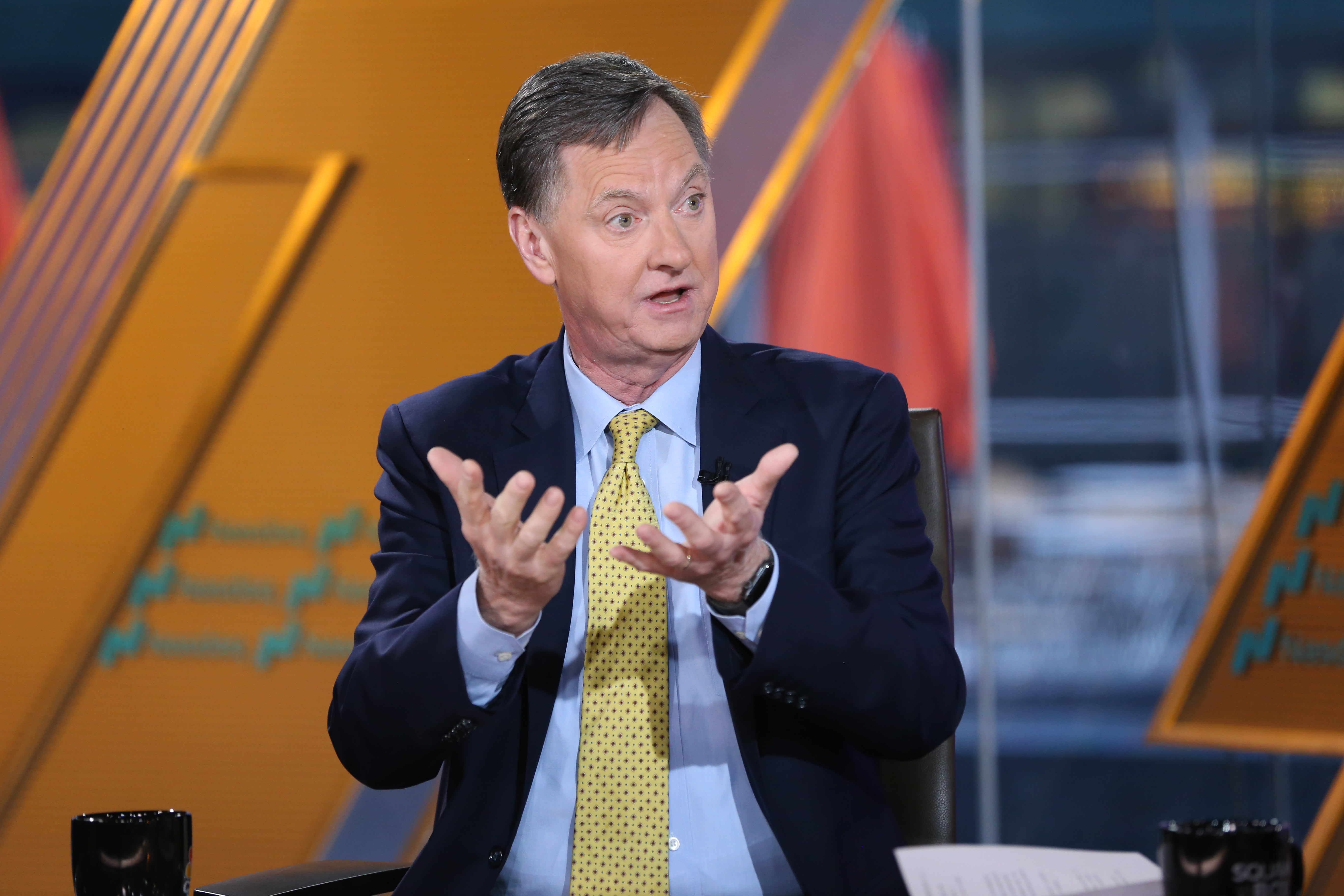Chicago Fed President Charles Evans said Tuesday that he is content with current Fed policy though he is worried about persistently low levels of inflation.
At a time when markets are anticipating at least two interest rate cuts before the end of 2019, Evans did not commit to any further loosening of policy as the market prices in looser policy and government bond yields sink to multi-year lows.
"At face value, it would suggest that the market sees something that I haven't yet seen in the national data," Evans told CNBC's Steve Liesman during a "Squawk Box " interview from Chicago.
He did say that the Fed needs to "defend" its 2 percent inflation target, indicating that if softness persists that could warrant a closer look at policy.
"I definitely think that with inflation being a little on the light side, there's the capacity to adjust policy if that's necessary," he said. "But the fundamentals of the economy continue to be solid, the consumer is solid. We have to navigate this, we have to think through what this really means."
Evans spoke at a "Fed Listens" event in his hometown, part of a continuing effort from the central bank to gauge whether it is employing the proper tools to achieve its dual mandate of full employment and price stability. The effort comes a decade after the end of the financial crisis, which the Fed responded to with an unprecedented arsenal of monetary weapons that included cutting its benchmark interest rate to just above zero and employing three rounds of bond buying that took its balance sheet to more than $4.5 trillion.
Over the past 3½ years, the central bank has been gradually raising interest rates and reducing the balance sheet size by allowing some proceeds from the bond portfolio to run off each months. However, the efforts to normalize policy have run into a slowing economy and worries that bond yields are pointing to a looming recession.
"When I think about our current long-run framework, I think it's a very good one. I think our dual mandate has served us extremely well," Evans said. "I think we have to be careful about where the economy is and where we think it's going."
The tendency of inflation to run persistently below the Fed's 2% goal has him "a little nervous." Evans added that he would be "more aggressive" in defending the Fed's symmetric target, meaning that policymakers would be comfortable with inflation running slightly above or below the goal.
"I think we should be overshooting 2%," he said.


